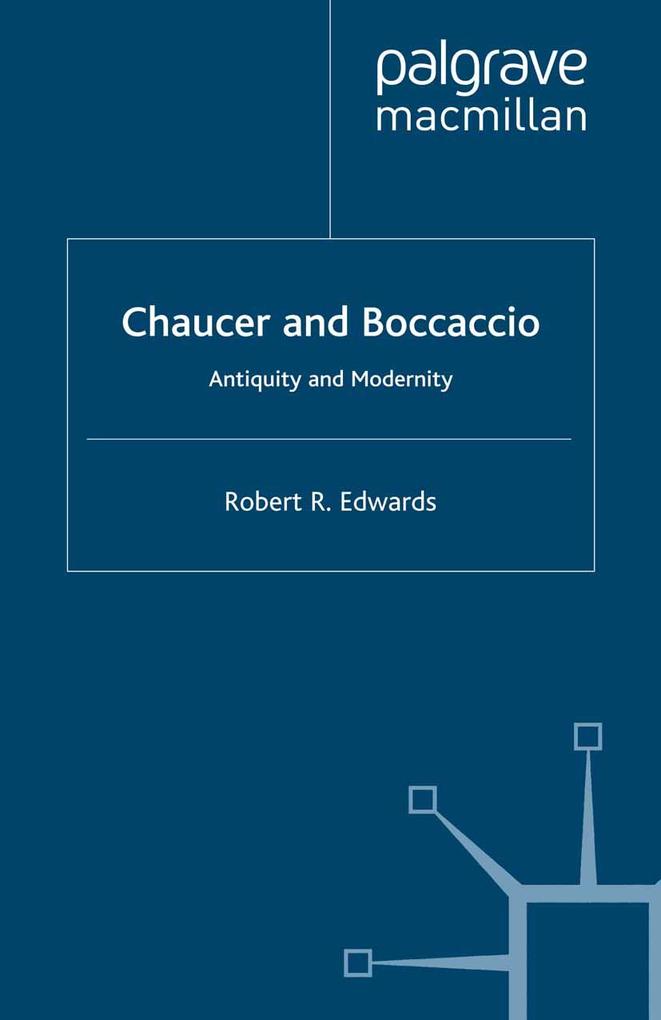In the late Middle Ages, Chaucer invents two imaginative domains crucial to his culture and to our understanding of the emergence of selfhood, subjectivity and social arrangements; antiquity and late-medieval modernity. Edwards demonstrates in this study how this was the result of Chaucer's reading and re-writing of the works of Boccaccio, which provide sources and models for portraying the classical past and medieval modernity. In so doing, Edwards provides us with a valuable way of assessing Chaucer's analysis of late medieval culture.
Inhaltsverzeichnis
A Note of Texts and Abbreviations Preface Introduction The 'strif of Thebes': Statius, Boccaccio, and Chaucer The Twin Necessity of Troilus and Criseyde The 'confusion of gentil wemen': Antiquity and the Short Side of History The 'Cherles Tale' and Chaucerian Modernity 'The sclaundre of Walter': The Clerk's Tale and the Problem of Hermeneutics Rewriting Menedon's Story: Decameron 10.5 and The Franklin's Tale Notes Index










